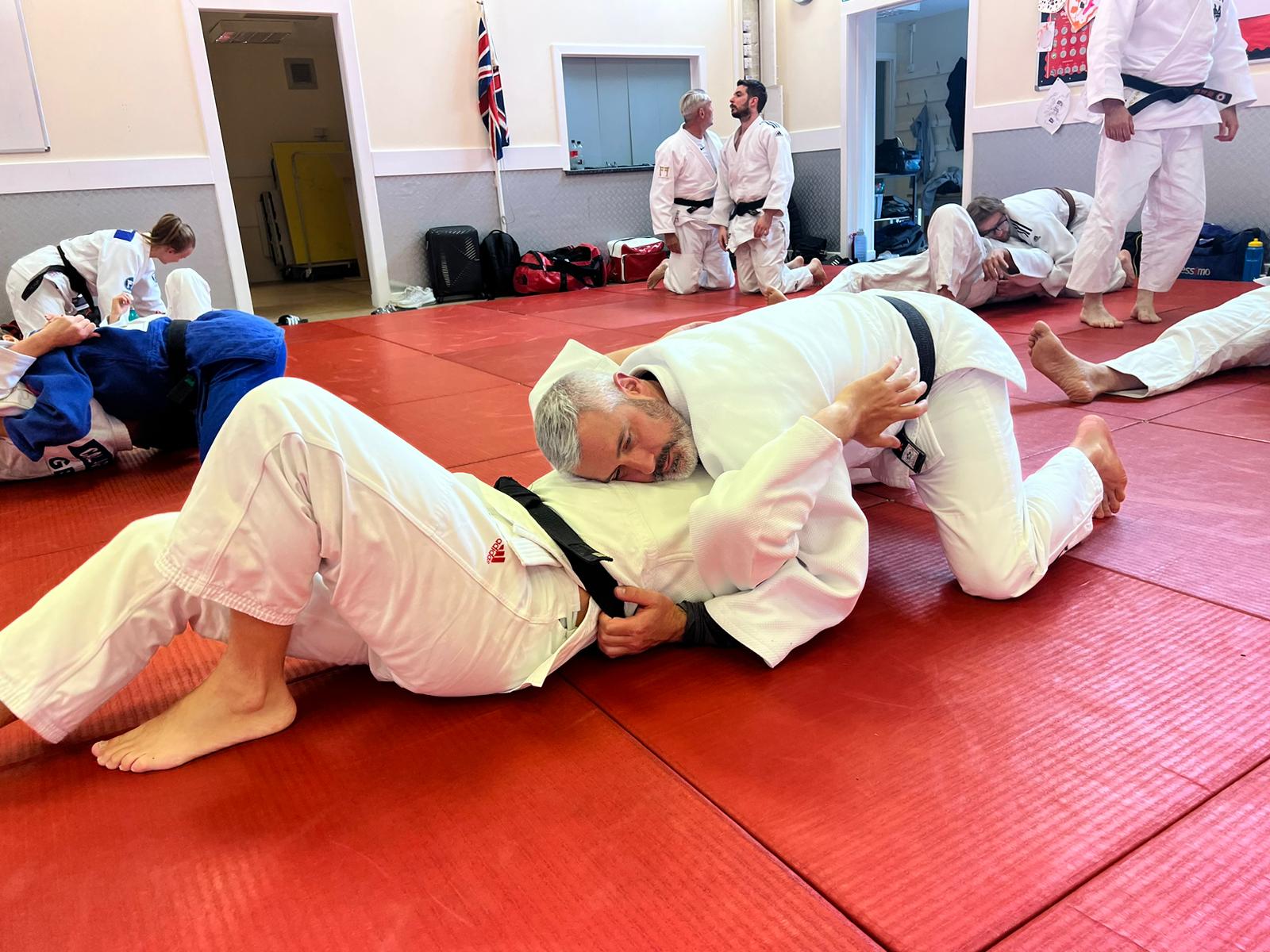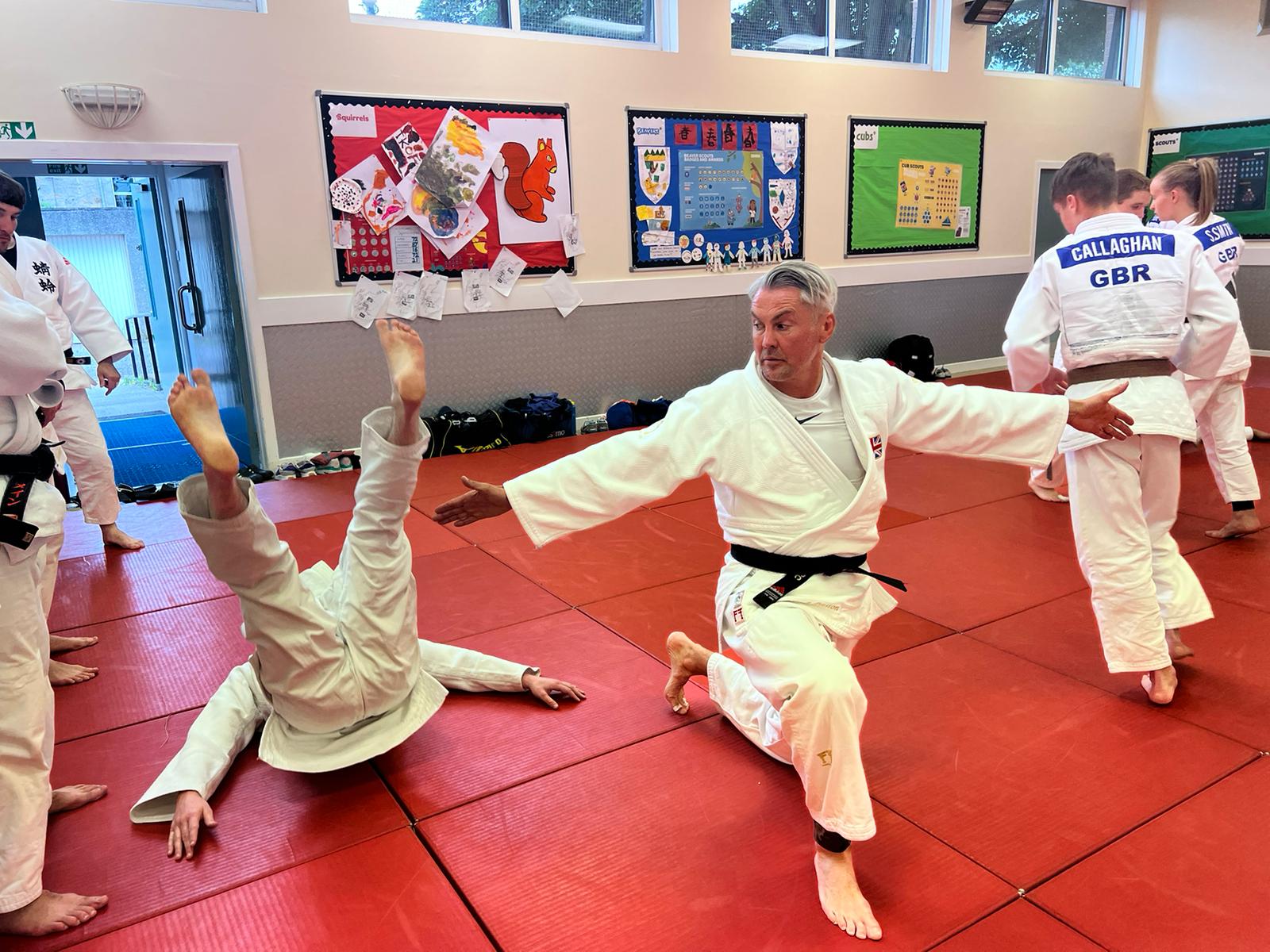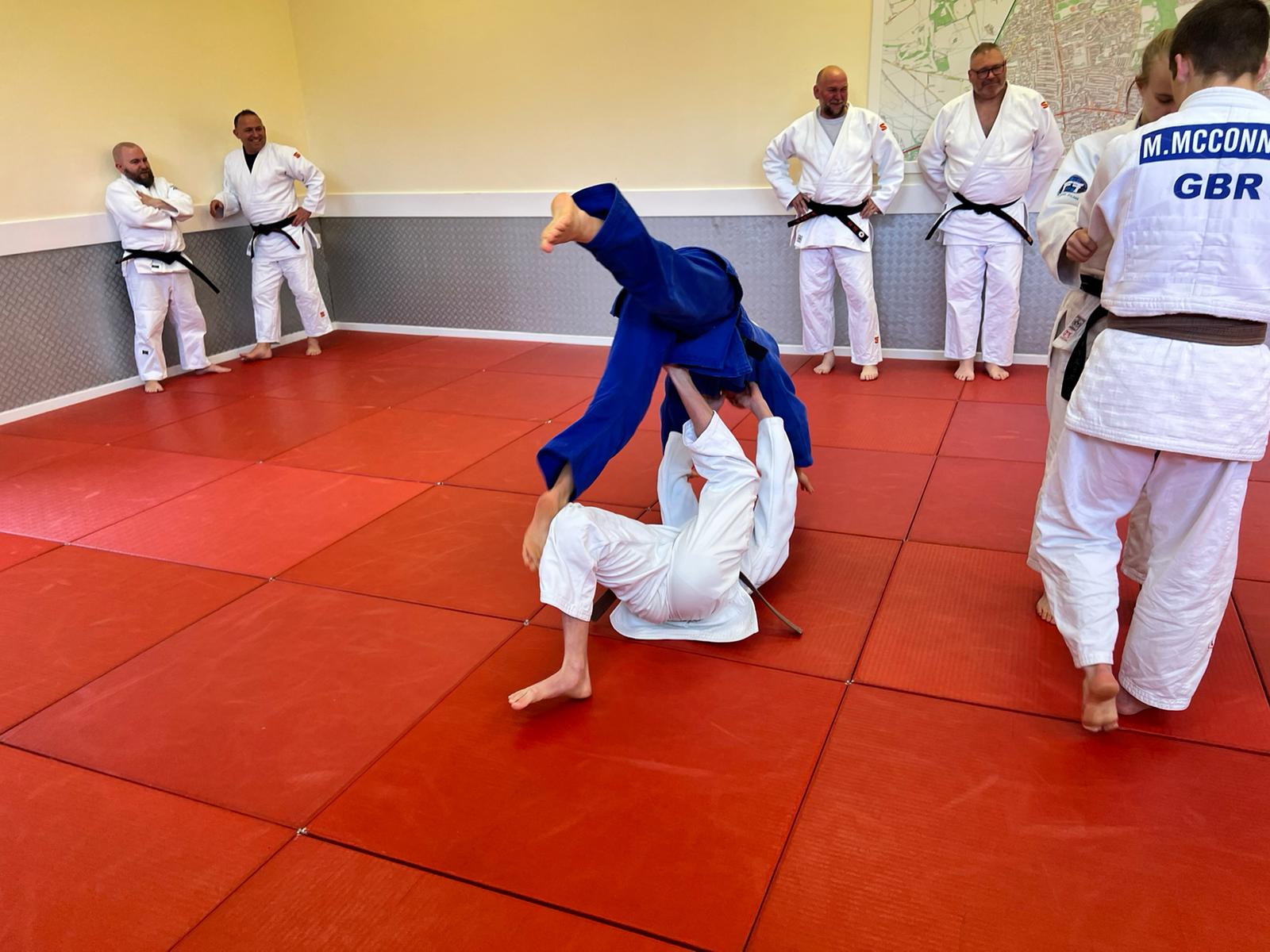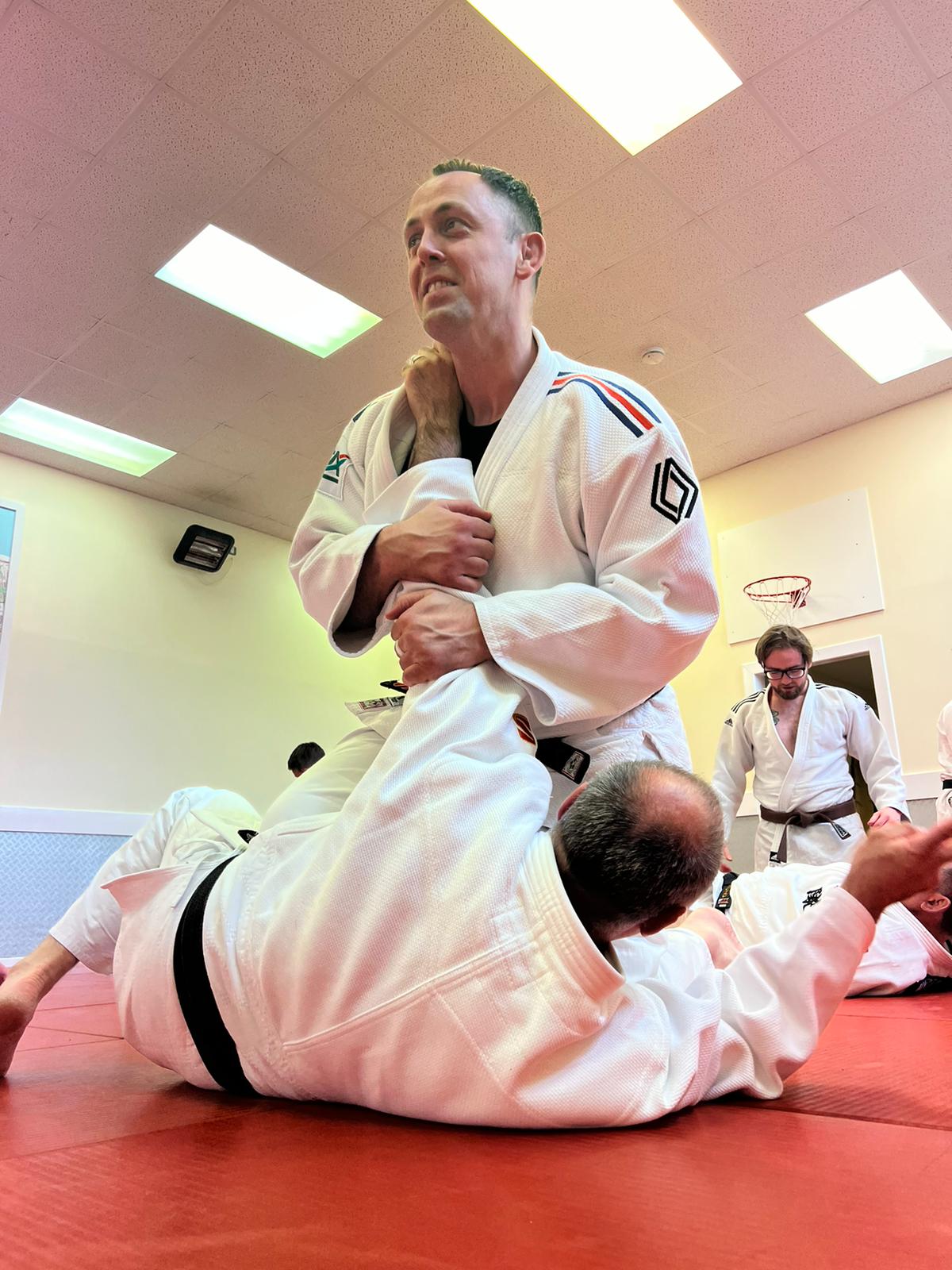Edinburgh, with its timeless charm and unpredictable weather, played host to a lively gathering of judo enthusiasts last weekend.
The occasion? A Level 1 kata session that brought together ten clubs from across the UK, all converging on the Scottish capital for a weekend of throws, pins, and more than a few laughs. The event featured the katame-no-kata, itsutsu-no-kata, and nage-no-kata, with instruction from none other than Dave Horton-Jones, a man known for his technical prowess and the ability to sprinkle a little humour into even the most serious of techniques.
From the moment the participants arrived, there was an unmistakable buzz in the air. The dojo was alive with the sound of greetings and the slapping of palms as old friends reunited and new acquaintances were quickly made.
Katame-no-kata… It’s really just an excuse to hug your training partner a little longer.

Saturday kicked off with the katame-no-kata, the forms of grappling and control. As the group settled into the session, any initial nervousness quickly gave way to a focus on fluidity and precision. Horton-Jones guided them through the intricate sequences, emphasising the importance of connection and balance. But in true Horton-Jones fashion, he couldn’t resist lightening the mood, reminding everyone that while kata might look like a choreographed routine, it’s really just an excuse to hug your training partner a little longer. Laughter punctuated the serious moments, making the learning process enjoyable for everyone.
Itsutsu-no-kata… It’s what happens when you’ve had one too many at the pub and you try to explain the universe.

Following the katame-no-kata, the group got stuck into the itsutsu-no-kata, perhaps the most mystical of the three. With abstract movements representing natural forces, this kata often leaves even seasoned judoka scratching their heads. Horton-Jones approached it with his signature blend of respect and wit, with others describing the first technique as “what happens when you’ve had one too many at the pub and you try to explain the universe.” The dojo echoed with laughter as everyone gave it their best shot, swaying and circling in a dance that was equal parts elegance and controlled chaos. Kudos to Marc Preston and Marv for performing the entire kata in front of the group at the end of the day.
By the end of Saturday, the participants were not just physically tired but intellectually and emotionally enriched. Bonds were forming as they shared tips and encouraged each other, embodying the spirit of camaraderie that makes judo more than just a sport—it’s a community.
Nage-no-kata… A dance of balance, timing, and precision.

Sunday brought a new energy to the dojo as the group reconvened for the nage-no-kata, the forms of throwing. For those unfamiliar, this kata is a dance of balance, timing, and precision. Horton-Jones, ever the attentive instructor, demonstrated the techniques with a careful eye for detail, pausing mid-throw to point out subtleties, yet always ready with a quip that had everyone chuckling even as they concentrated on their footwork. As the throws were executed, there was a mixture of intensity and amusement—intensity in perfecting the technique and amusement in the occasional, good-natured missteps.
“Remember, the most important thing about kata is to keep practising. But if you can’t practise, at least make sure you have a good story to tell about why you didn’t.”
The weekend wasn’t just about perfecting kata, though; it was about the friendships and camaraderie that blossomed amongst the group. Whether grappling on the tatami or chatting over tea during breaks, a sense of belonging transcended the different clubs and backgrounds.
As the session wrapped up on Sunday afternoon, there was a collective feeling of satisfaction. The participants had not only honed their kata skills but also strengthened the bonds of friendship and mutual respect. As they packed up their gear and prepared to head back to their respective corners of the UK, there was already talk of the next gathering, and a promise to bring the same positivity, technical excellence, and, naturally, a healthy dose of humour.
And as for Horton-Jones, he left the group with a final thought: “Remember, the most important thing about kata is to keep practising. But if you can’t practise, at least make sure you have a good story to tell about why you didn’t.”
Congratulations to those participants who were awarded their Level 1 kata, having undertaken their examinations over the course of the weekend.
Naturally, a massive thank you to Dave for leading the sessions and to Callum Woods for organising and hosting.
Stuart Sim
Subscribe to our Awesome Newsletter.
